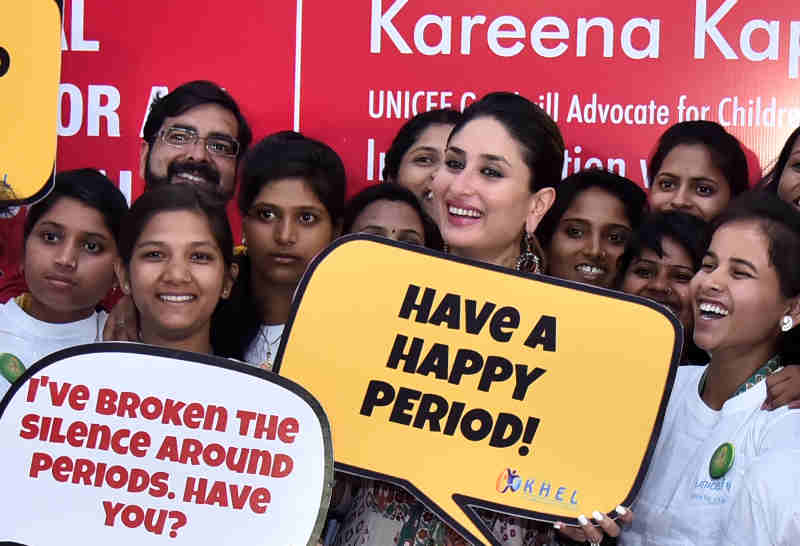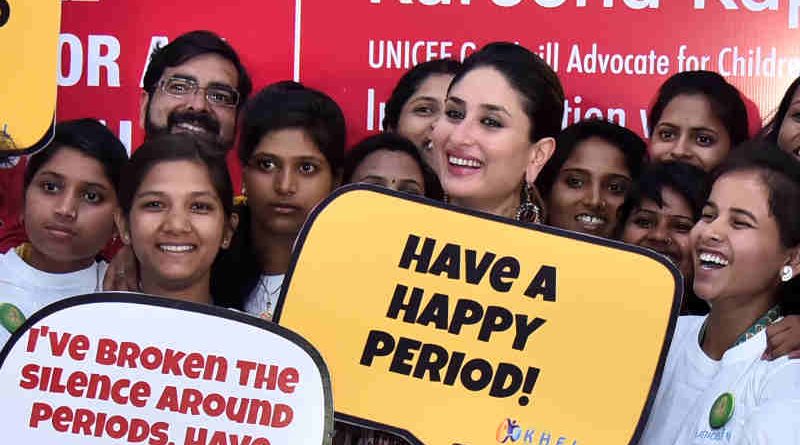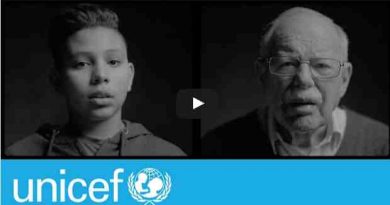UNICEF Reveals Nine Key Facts on Menstruation

Photo by: Ashutosh Sharma / UNICEF
According to UNICEF, menstruation is a normal and healthy part of life for most women. Roughly half of the female population — around 26 per cent of the global population — are of reproductive age.
Most women menstruate each month for about two to seven days. Yet, as normal as it is, menstruation is stigmatized around the world.
A lack of information about menstruation leads to damaging misconceptions and discrimination, and can cause girls to miss out on normal childhood experiences and activities.
Stigma, taboos and myths prevent adolescent girls — and boys — from the opportunity to learn about menstruation and develop healthy habits.
[ Female Genital Mutilation Is a Violation of Human Rights ]
“At UNICEF, we envision a world where every girl can learn, play, and safeguard her own health without experiencing stress, shame, or unnecessary barriers to information or supplies during menstruation,” said Sanjay Wijesekera UNICEF Chief of Water, Sanitation and Hygiene. “Meeting the hygiene needs of all adolescent girls is a fundamental issue of human rights, dignity, and public health.”
Nine key facts on menstruation:
- On average a woman menstruates for about 7 years during their lifetime.
- The first period can be met with either celebration, fear or concern. For every girl, this signifies an important transition to womanhood – a time when they would benefit from the support of family and friends.
- Many girls do not have complete and accurate understanding of menstruation as a normal biological process. Educating girls before their first period — and, importantly, boys — on menstruation, builds their confidence, contributes to social solidarity and encourages healthy habits. Such information should be provided at home and at school.
- Poor menstrual hygiene can pose physical health risks and has been linked to reproductive and urinary tract infections. Many girls and women have limited options for affordable menstrual materials. Providing access to private facilities with water and safer low-cost menstrual materials could reduce urogenital diseases.
- Girls and women with disabilities and special needs face additional challenges with menstrual hygiene and are affected disproportionately with lack of access to toilets with water and materials to manage their period.
- Many women and girls do not have access to materials to manage their menstruation, especially in times of emergency — natural disasters and conflicts. In emergencies, UNICEF provides dignity kits to women and girls, which include sanitary pads, a flashlight and whistle for personal safety when using the toilet.
- Globally, 2.3 billion people lack basic sanitation services and in Least Developed Countries only 27 per cent of the population has a handwashing facility with water and soap at home. Managing periods at home is a major challenge for women and adolescent girls who lack these basic facilities at home.
- About half of the schools in low-income countries lack adequate drinking water, sanitation and hygiene crucial for girls and female teachers to manage their period. Inadequate facilities can affect girls’ experience at school, causing them to miss school during their period. All schools should provide running water, safe and clean toilets for adolescent girls.
- UNICEF is working with local communities, schools and governments to research and provide information about menstruation, promote positive hygiene habits and break down taboos. UNICEF also provides adequate facilities and supplies, including toilets, soap and water to schools in some of the poorest regions.
Photo courtesy: UNICEF





